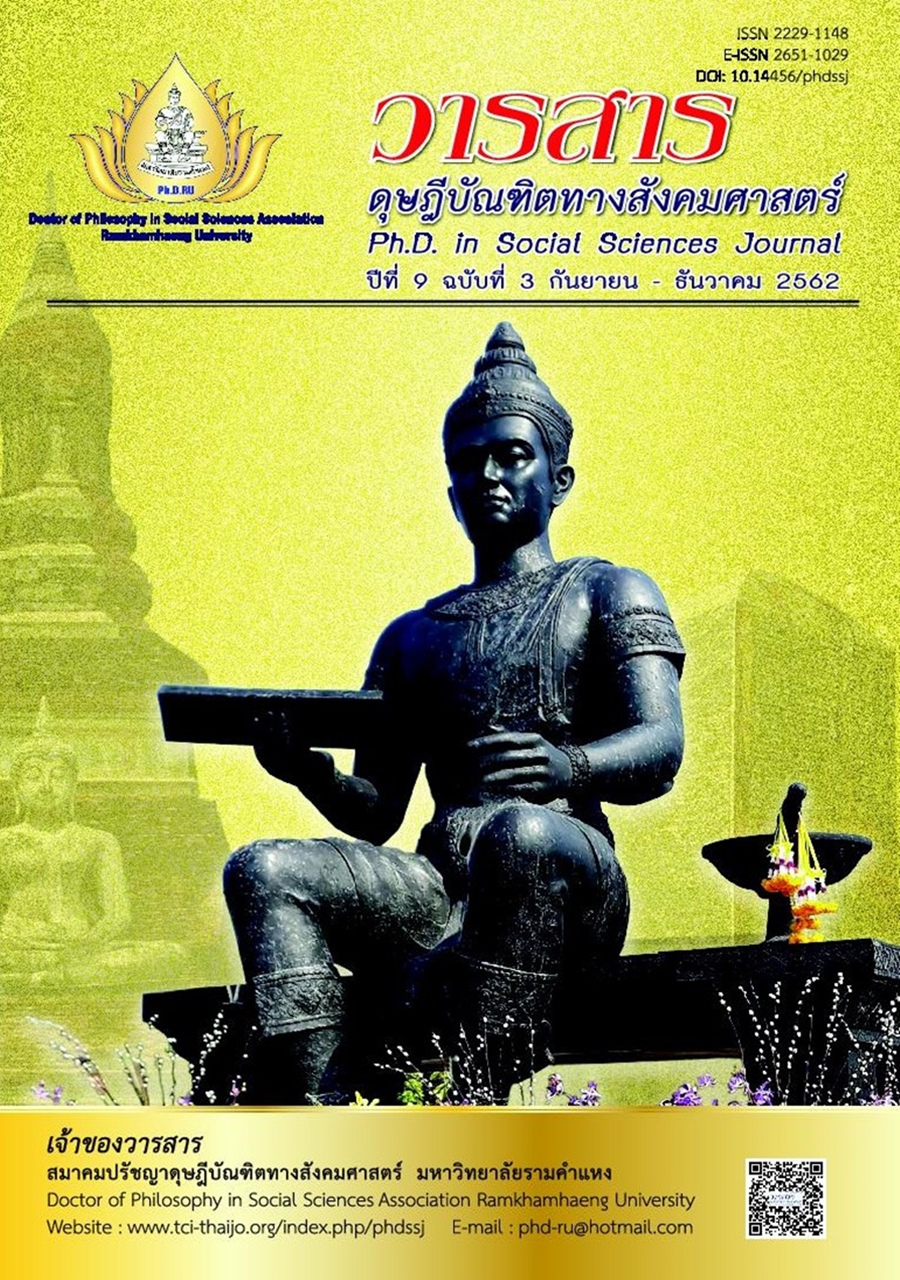The Competitive Advantage Strategies of Small and Medium Sized Hotels in Bangkok
Main Article Content
Abstract
The objectives of this research were to: (1) Study business management factors of small and medium sized hotels in Bangkok (2) Study business competitive advantage strategies factors of small and medium sized hotels in Bangkok (3) Analyze the influence of business management on business competitive advantage strategies factors of small and medium sized hotels in Bangkok and (4) Study strategies for business competitive advantage strategies of small and medium sized hotels in Bangkok. The research methodology was based on quantitative model. Simple size of 540 the hotel management were sampling. Tools used for the research were questionnaire with 0.975 confidence level. Descriptive statistics used in data analysis were mean, standard deviation and inferential statistics of stepwise multiple regression analysis.
The results of this research revealed : (1) the means of the business management factors of small and medium sized hotels in Bangkok was at high level ( = 3.99, SD =.58) (2) the means of business competitive advantage strategies factors of small and medium sized hotels in Bangkok was at high level (
= 4.11, SD =.65) (3) the business management factors that affected business competitive advantage of small and medium sized hotels in Bangkok of four aspects: the differentiate was marketing business management factors with highest value of 0.4142, the quick response was marketing business management factor with highest value of 0.3797, the cost leadership was finance business management factor with highest value of 0.3213 and the employee potential was marketing business management factor with highest value of 0.3759 and (4) business competitive advantage strategies of small and medium sized hotels consisted of 4 key strategies include strategy differentiate, quick response, cost leadership, and employee potential.
Article Details
Academic articles, research articles, and book reviews in the Ph.D. in Social Sciences Journal are author’s opinions, and not the publisher’s, and is not the responsibility of the Ph.D. in Social Sciences Journal Philosophy Association, Ramkhamhaeng University. (In the case that research is done on human, the researcher has to be trained in Ethics for Doing Research on Human Training and has to produce the evidence of the training).
References
Bordean, O.-N., & Borza, A. (2014). Strategic management practices within the Romanian hotel industry. Contemporary Approaches and Challenges of Tourism Sustainability, 16(8), 1238 -1252.
Department of Business Development. (2010). A study of the status and competitiveness of hotel business in Thailand. Ministry of Commerce [In Thai]
Enz, C. A. (2011). Competing successfully with other hotels: The role of strategy. New York: Cornell University, School of Hotel Administration.
Fraj, E., Matute, J., & Melero, I. (2015). Environmental strategies and organizational competitiveness in the hotel industry: The role of learning and innovation as determinants of environmental success. Tourism Management, 46, 30-42.
Hatten, T. S. (2012). Small business management entrepreneurship and beyond (5th ed.). Mason, OH: South-Western Cengage Learning.
Katz, J. A., & Green, R. P. (2014). Entrepreneurial small business (4th ed.). New York: McGraw-Hill.
Koseoglu, M. A., Ross, G., & Okumus, F. (2016). Competitive intelligence practices in hotels. International Journal of Hospitality Management, 53, 161-172.
Krungsri Research. (2019). Hotel in downtown Bangkok: Thailand industry outlook 2019-2021. Bangkok: Author. [In Thai]
LH Bank Business Research Office. (2014). Hotel business in Bangkok. Bangkok: Author. [In Thai]
Pilomphanich, M., & Promsit, S. (2016). Strategy of competitive advantage in hotel business in Bangkok with green marketing. Suan Dusit University Graduate School Academic Journal, 12(2), 62-70. [In Thai]
Porter, M. E. (1985). Competitive advantage: Creating and sustaining superior performance. New York: The Free Press.
Porter, M. E. (1996). What is strategy?. Harvard Business Review, 74(6) 61-78.
Prabawani, B. (2013). Measuring SMEs’ sustainability: A literature review and agenda for research. International Journal of Management and Sustainability, 2(12), 193-207.
Stylos, N., & Vassiliadis, C. A. (2015). Differences in sustainable management between four-and five-star hotels regarding the perceptions of three-pillar sustainability. Journal of Hospitality Marketing & Management, 24(8), 791-825.
Suksrisawat, O., & Limim, P. (2014). To create a competitive advantage in the competitive business of entrepreneurs stay in Chonburi. The 7th National Conference on Technical Education, King Mongkut’s University of Technology North Bangkok. [In Thai]
Wanitchbancha, K. (2011). Statistics for research (6th ed.). Bangkok: Dharmasarn. [In Thai]


